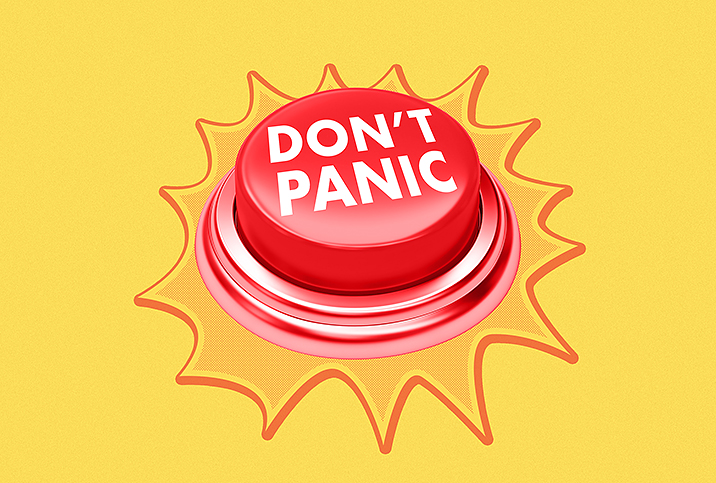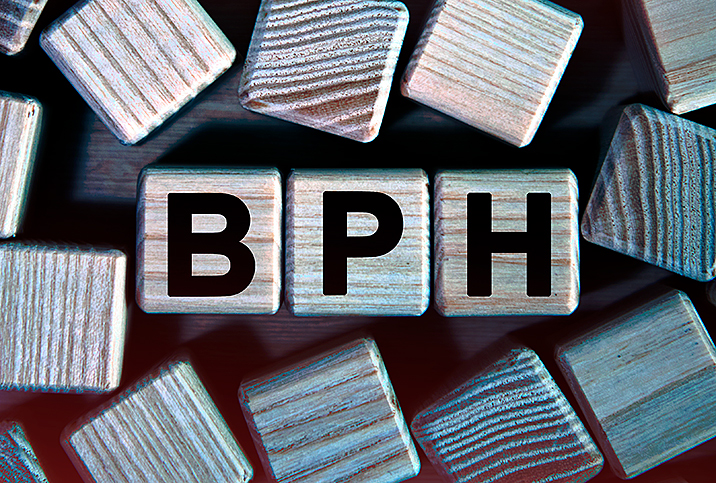5 Reasons—Other Than Prostate Cancer—PSA Can Be Elevated

When you hear the words "high PSA," chances are your mind goes to one place and one place only: cancer. While it's true that an elevated prostate-specific antigen (PSA) level can indicate the presence of cancer in the prostate gland, it's not a guarantee.
First, some background: PSA is a protein created by normal and cancerous cells in the prostate, so when you go to the doctor for prostate cancer screening, you'll get a PSA test to detect levels of this particular antigen in the blood.
In general, a PSA level is considered high when it's above 4 nanograms per milliliter (ng/mL), explained Mohamed H. Kamel, M.D., a professor of clinical surgery at the University of Cincinnati College of Medicine and a UC Health oncologist.
Many noncancerous causes, including getting older, can elevate PSA levels. Additionally, what constitutes a concerningly high PSA level varies based on family history and an individual's own PSA-level trends over time, according to S. Adam Ramin, M.D., a urologist and the medical director of Urology Cancer Specialists in Los Angeles.
So if you're getting your prostate checked, it's a good idea to familiarize yourself with the following benign reasons for an elevated PSA level—and try not to panic before you talk to your doctor.
1. Prostatitis
One common reason for a high PSA level is prostatitis, or inflammation of the prostate, Kamel explained.
Prostatitis occurs when the immune system penetrates the prostate and starts attacking whatever's within the prostate. Most often, this happens as a result of an infection in the prostate, such as when bacteria are present.
However, Ramin noted that even without an active infection, the prostate could still be inflamed as a result of immune system activity. But the end result of either an infection or a random prostate attack is the same: PSA levels go up.
2. Benign enlargement of the prostate
In this situation, the prostate is enlarged, much as it would become with prostate cancer. However, with benign prostatic hyperplasia, known as BPH, the prostate and surrounding tissue are enlarged for reasons other than the presence of cancer.
BPH occurs in many men as they get older. About half of all men between the ages of 51 and 60 have BPH, and up to 90 percent of men older than 80 have it, according to the American Urological Association.
This enlargement can cause uncomfortable symptoms, such as trouble starting or stopping urination, but it's not dangerous. Left untreated, BPH can lead to serious complications, and having BPH doesn't necessarily mean you will never get cancer, Kamel said.
3. A genetic predisposition for increased PSA production
Some men just make more PSA than others, Ramin said.
"Some men, without having an infection, without having [an] enlarged prostate and without having cancer, tend to genetically just make more PSA than others and, therefore, have an elevated PSA," he said.
4. Recent ejaculation
PSA levels tend to go up slightly after ejaculation, Ramin said. Levels can increase significantly in men ages 49 to 79 for up to 48 hours after they ejaculate, according to the journal Urology. So if you have a higher-than-normal PSA level and have ejaculated in the past 48 hours, you may have a plausible explanation.
In fact, if you're scheduled for a PSA check soon, it's recommended you refrain from ejaculating for at least 48 hours before your test for this reason.
5. Prostate manipulation
In an ironic twist, any type of physical manipulation of the prostate—such as a digital rectal exam (DRE) or a transrectal biopsy—could cause a slight elevation in PSA levels. So, technically, it is possible that the very DRE you received while going in to check your prostate could be the culprit behind a rise in your PSA level. Doesn't seem fair, right?
"If a patient comes in and gets a digital rectal examination or undergoes a prostate massage or they have anal intercourse or an ultrasound probe is placed to do a prostate biopsy—anything that physically pushes on the prostate gland can also cause more PSA to enter the bloodstream and cause an elevated PSA," Ramin explained.
In the end, it's important to realize that a high PSA level may only be a sign you need further evaluation and monitoring, and not necessarily a sign that you have cancer. Talk to your doctor about the next steps and keep in mind that even if prostate cancer is the reason for the elevated PSA level, most men survive it. The five-year relative survival rate is 98 percent, so prostate cancer is not a death sentence by any means.
"The take-home message here is that an isolated, elevated PSA does not always mean prostate cancer," Ramin said. "If a man finds that they have an elevated PSA, don't freak out. See a urologist and let the process work itself out the right way to determine what the next steps are."


















